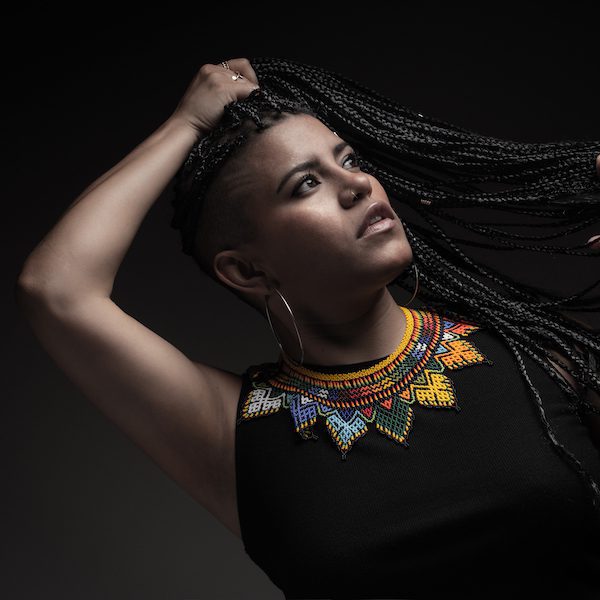

“As Colombians have places to dance or play Cumbia or Merengue, or Cubans have places to dance Rumba, or let’s say the Brazilians have places to play Samba or Choro or Forro, there’s no place for Venezuelan musicians,” says María Fernanda González, known professionally as Mafer Bandola, of the contemporary dance scene for New York City’s various Latin American communities. “It was missing that.”
But she’s trying to change that. A winner of the Audiofemme 2022-23 Agenda Grant, Mafer Bandola is an instrumentalist, composer and pioneer within the Joropo Llanero genre, an Afro-Indigenous tradition from the High Plains of Venezuela. She’s already known as an innovator occupying a unique place in her field, having performed at institutions like MassMoca, WOMAD, Womex, TED, NPR TinyDesk and more. Born in Barquisimeto, Venezuela, she moved permanently to New York City this past year, where she began to teach dance workshops for her particular genre of music.
That she is able to teach the dance to fellow Venezualians in New York City is integral to her mission. As she explains, Joropo means “party,” but most importantly, “party doesn’t happen without the work of the community.” When she came to New York, she noticed that the people attending her performances were just “sitting to listen to the musicians playing and singing. And now I’m trying to organize this… This is music that you can dance to, but you have to learn how, so I started teaching.” While these workshops are open to anyone, she says she would “specifically like to connect with Venezuelans. I’ve been teaching Venezuelans who have been living here for the last 30 years, and they felt that they didn’t have this space even to learn, or even to meet and talk about what they are doing.” Furthermore, she places great emphasis on teaching the children of these immigrants, so that the tradition can be passed on.
Joropo is a mix of indigenous, African and Spanish traditions, one rooted in resistance. As she explains, “during colonialism in Venezuela, enslaved indigenous and African peoples saw their own Spanish enslavers dance waltzes inside their mansions. As a joke, they created their own dance, making fun of the waltz by exaggerating its movement. Thus, Joropo was born as a kind of resistance against the oppression of the enslavers.”
With her grant, she envisions a “portable community house” of music, song and dance, a multicultural meeting point of Venezualan immigrants, musicians and the general public in New York City, which has become an epicenter of the Venezualan diaspora. Because of the economic crisis in Venezuela, she notes that the recent exodus out of the country is the largest migration that has existed in the history of the Western hemisphere. She says that by the end of 2021, 7 million have emigrated, which is only slightly less than the population of New York City itself (8.4 million). She sees the creation of a flexible community “space” as being crucial to maintaining traditions of “La Venezolandidad Immigrante.”
So too does she inhabit an interesting intersection in this space – in general, women do not play the bandola in Venezuela. She is one of the only female players of this instrument in the world, and as such, she works to actively promote the integration of women who perform professionally using traditional Venezuelan instruments. In addition to the big ways she does this – actively creating community and teaching this style of music and dance – she does it in small ways everyday as well, oftentimes babysitting the children of fellow female musicians so that they can rehearse and gig. Being a woman in a male-dominated role can be isolating in any regard, but especially when you are one of the first to do so.
“It’s been really challenging for me to actually create a path for oral tradition and professional musicians, because I didn’t have that role to follow in Venezuela,” she says. “There is no female adult playing this instrument professionally. So when I received this grant with this idea, that actually is helping me to be at peace with my traditions, because somehow, I don’t represent my traditions.”
Her “portable community house” is already underway, in some respects – every fourth Sunday, Mafer Bandola hosts Pipiris Nights at Barbés in South Slope, both in-person and streaming online. Those who’d like to join the party – and support her mission – can catch her next Joropo event is this Sunday, May 22.
Follow Mafer Bandola on Instagram for ongoing updates.




